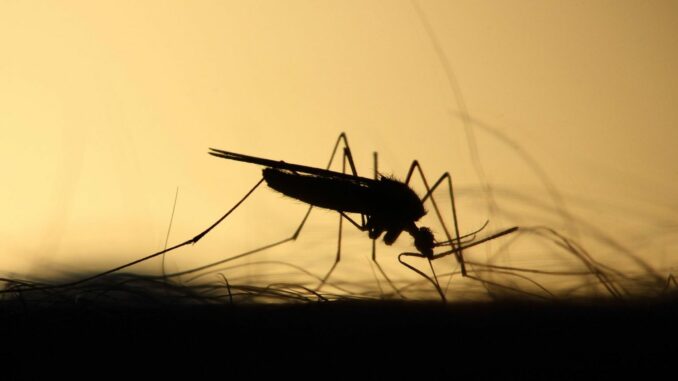
State health officials seeing concerning trends of West Nile virus
The first Colorado death in 2023 related to the West Nile virus was recently confirmed in Weld County.
According to the Weld County Department of Public Health and Environment, the 53-year-old Weld resident had previously been hospitalized for the virus before dying from neuroinvasive West Nile virus.
Eight investigations of West Nile virus in Weld County residents have been conducted. According to Weld County officials, residents who have tested positive are from various locations throughout the state, making the West Nile virus an endemic in Colorado, meaning you can get the virus anywhere infected mosquitoes live and breed. Health department investigators anticipate increased human infections as the mosquito season continues.
So far this season, state health officials have confirmed 12 human cases of West Nile virus in residents from eight counties. The abundance of Culex mosquitoes this season is likely due to the unusual winter and spring precipitation. Currently, no medications to treat or vaccines to prevent the West Nile virus infection.
Officials say this is a significant increase from what would typically be seen in Culex mosquitoes that carry the virus at this time of year. Additionally, West Nile virus has been found in mosquitoes in eight of the 11 counties tested this season, including Adams, Arapahoe, Boulder, Delta, Denver, Larimer, Pueblo, and Weld counties.
The West Nile virus symptoms can appear two to 14 days after infection. While 80% of people never develop symptoms after becoming infected, for some, initial symptoms can include fever plus headache, vomiting, diarrhea, muscle aches, joint pain, weakness, and a rash.
“The trends we are seeing in our West Nile virus tracking data are unprecedented,” said Dr. Rachel Herlihy, state epidemiologist CDPHE. “The number of West Nile virus-infected mosquitoes we’ve detected this season is the highest in years. This is especially concerning now that August is here and September is just around the corner, as this is usually when human cases peak in Colorado.”
In 2022, Colorado had 206 reported human cases of West Nile virus, including 20 deaths. People aged 60 years and older and those with certain medical conditions are at greater risk of serious illness. Everyone is encouraged to talk with a healthcare provider if they develop a fever, severe headaches, or confusion.
As Weld County officials continue to see high numbers of Culex mosquitoes, health officials encourage residents to drain standing water near their homes weekly, avoid going outdoors at dusk and dawn, and wear mosquito repellent and long sleeves and pants in areas where mosquitoes are active.
For more information about WNV, go to www.weld.gov/go/zoonosis. For more information about insect repellents, visit the EPA’s information webpage. You can find additional data from 2003 on CDPHE’s West Nile virus webpage, which is updated weekly throughout the season.
Support Northern Colorado Journalism
Show your support for North Forty News by helping us produce more content. It's a kind and simple gesture that will help us continue to bring more content to you.
BONUS - Donors get a link in their receipt to sign up for our once-per-week instant text messaging alert. Get your e-copy of North Forty News the moment it is released!
Click to Donate
